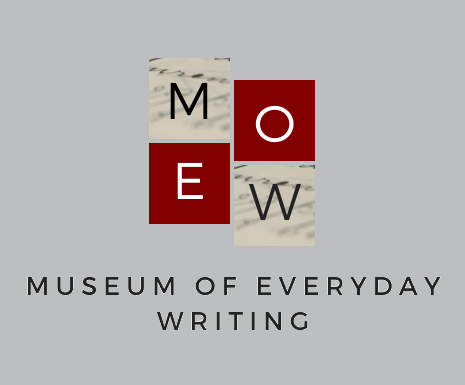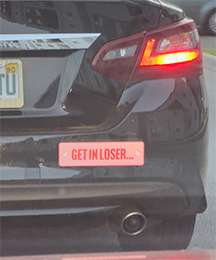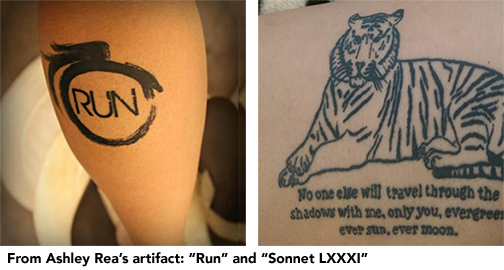Writing is everywhere: the MoEW showcases its depth, simplicity
By Giana Nardelli
In the 21st century, writing occurs on more mediums than it ever has before.
Writing occurs all around us: someone typing lecture notes on a laptop during class; a club using chalk to advertise its event on the sidewalk; or even signing your name in the frosted glass at a supermarket.
The Museum of Everyday Writing’s purpose is to celebrate this abundance of text.
FSU’s Rhetoric and Composition Program’s collection showcases writing from nonacademic and nonprofessional spaces. The museum itself is free to access and is entirely online—anyone is welcome to submit a piece of writing for museum’s staff to assess.
Jacyln Fiscus-Cannaday, an assistant professor in the Rhetoric and Composition Program, is the faculty administrator for the MoEW. She has supervised the site for three years and explains that she finds it fascinating how many of this generation’s writers do not see themselves as writers.
“A lot of times, when we talk to students, they’ll say ‘Oh, I’m not a writer,’ but are actually very active on social media, or they’re active in journaling, or texting,” Fiscus-Cannaday says. “All of that counts as everyday writing.”
The museum’s aim is to broaden people’s perspectives on what can be considered writing.
“Everyday writing is often considered to be mundane, invisible, and ephemeral, though these texts are often valuable to their writers and readers,” MoEW’s About page reads, “this definition shapes the artifacts we curate and the ways in which we categorize these artifacts. Though we ascribe to a particular definition of everyday writing, we encourage you to play with our definition, testing it against your own understanding of everyday writing and the artifacts in this museum.”
 The staff is interested in writing that comes with meaning: “We want to see writing that has a story behind it. This might be a family recipe book, a note on the wall that you found interesting, a tattoo you have, and so on,” the website explains.
The staff is interested in writing that comes with meaning: “We want to see writing that has a story behind it. This might be a family recipe book, a note on the wall that you found interesting, a tattoo you have, and so on,” the website explains.
English department graduate students oversee MoEW and undergraduate interns regularly update the site, which is always open for submissions through the website portal.
Fiscus-Cannaday emphasizes that the museum’s interns do important work for MoEW, and they “have opportunities to create an exhibit of something they feel like they, or the university, hasn’t seen yet or something they want to expand upon.”
The interns organize submissions into artifacts to be published on the website as well as create projects and perform research through curated exhibits. One artifact on display is “Get In Loser,” uploaded by an anonymous photographer in February 2023. The image is of a pink bumper sticker that reads “Get In Loser…,” referencing a quote from the 2004 film Mean Girls. The contributor described the sticker as “humorous, and allows others to know that this driver likes the movie Mean Girls, while also insinuating that they are probably going shopping. Because the complete phrase from the movie is ‘Get in loser, we're going shopping.’”
 Ashley Rea’s “Tattoos: Remediation & Inked Identity” explores how ink on skin is a medium that can showcase the connection between personal meanings behind art and words, in addition to discussing how tattoos “exist within the public sphere.”
Ashley Rea’s “Tattoos: Remediation & Inked Identity” explores how ink on skin is a medium that can showcase the connection between personal meanings behind art and words, in addition to discussing how tattoos “exist within the public sphere.”
Many inked individuals shared their stories for the exhibit, and Rea provides to the audience a gallery of not only tattoos but also an insightful history of the practice.
Whether the significance behind a piece of writing is sentimental, nostalgic, or just something considered “cool,” the museum presents an opportunity to recognize the writing that surrounds us in our everyday lives.
FSU students who are interested in working with the museum, contact Fiscus-Cannaday at jfiscus@fsu.edu.
Giana Nardelli is an English major on the editing, writing, and media track, with a second major in media/communication studies. Follow the English department on Instagram @fsuenglish; on Facebook facebook.com/fsuenglishdepartment/; and Twitter, @fsu_englishdept
